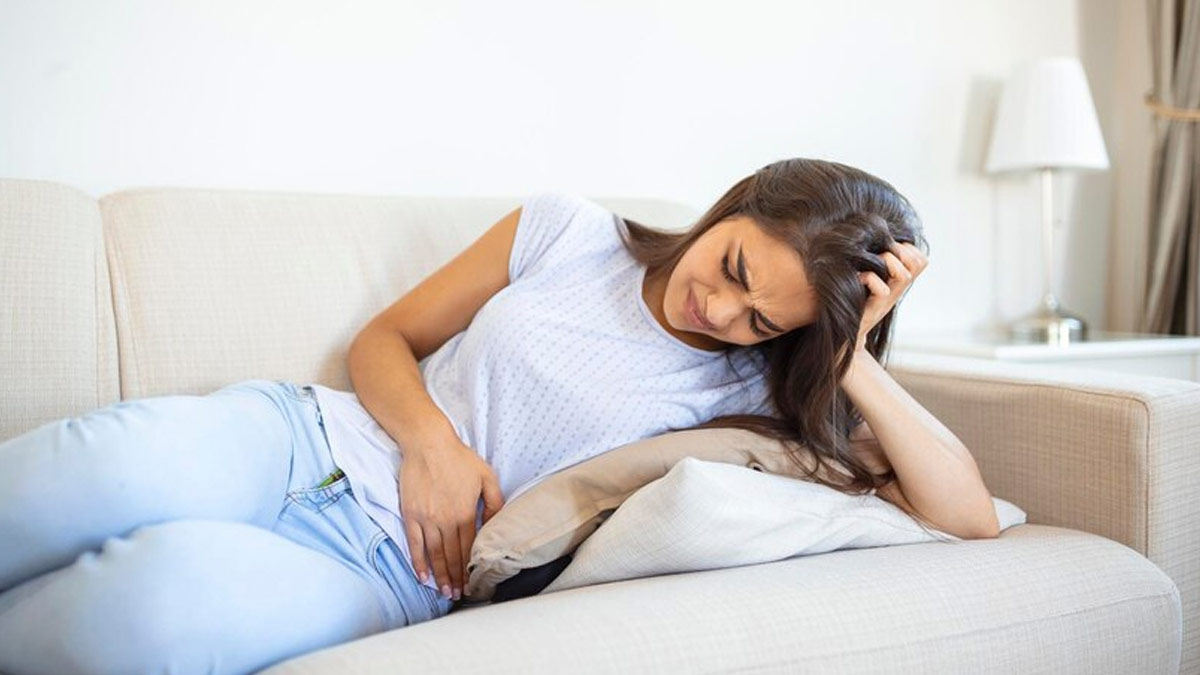
Menstruation is a naturally occurring event in every woman of reproductive age. While it refers to the monthly bleeding that occurs when the lining of a woman's uterus is shed, it is also associated with various hormonal fluctuations that lead to several symptoms before and during the period.
Table of Content:-
When symptoms occur before periods, they are called Premenstrual Syndrome (PMS), which occurs in 40–90% of women of reproductive age, according to a 2016 article in BJOG. Constipation is one of the many symptoms associated with PMS. Speaking with the OnlyMyHealth team, Dr Sunita Sharma, Consultant Obstetrician and Gynaecologist, Infertility Specialist, Fortis Nagarbhavi, Bengaluru, explained why it occurs and how one can manage the digestive issue.
Also Read: Premenstrual Syndrome: Definition And 6 Tips For Management
Why Some People Have Constipation Before Period

“Constipation before periods is commonly attributed to hormonal fluctuations, especially increases in progesterone,” says Dr Sharma, adding that this hormone relaxes smooth muscles, including those in the intestines, slowing down digestion.
Additionally, changes in oestrogen levels can lead to water retention, making stools harder and causing constipation.
How Dietary Changes Can Help Relieve Constipation Before Period

According to StatPearls Publishing, dietary factors that contribute to PMS include consumption of fast food, drinks containing sugar, and deep-fried foods. Additionally, a sedentary lifestyle and poor sleep quality also affect PMS symptoms.
Dr Sharma says, "Dietary changes can significantly alleviate premenstrual constipation." These include:
- Increasing fibre intake through fruits, vegetables, whole grains, and legumes helps add bulk to stools, facilitating easier passage.
- Staying well-hydrated, as it softens stools.
- Reducing processed foods and sugar consumption, as these can exacerbate constipation by lowering fibre intake and hydration levels.
Also Read: Identifying Premenstrual Dysphoric Disorder (PMDD): Health Impact And Treatment Approaches
How To Relieve Premenstrual Constipation

Dr Sharma adds that lifestyle modifications can further support digestive health during the premenstrual phase. This includes regular physical activity that stimulates the digestive system, promoting bowel movements. Stress management techniques, such as yoga or meditation, can also be beneficial, as stress can negatively impact digestion. Establishing a consistent bathroom routine and responding promptly to urges to go can help prevent worsening constipation.
When it comes to choosing the right exercises, Dr Sharma recommends gentle activities like walking, yoga, and stretching that promote intestinal movement; yoga poses such as the child's pose or seated forward bend, which can relieve abdominal tension and encourage digestion; and regular aerobic exercise, even for short durations, that can help enhance overall digestive health and help mitigate constipation during this time.
While Over-the-Counter (OTC) laxatives can provide relief for premenstrual constipation, they should be used cautiously to avoid dependency, warns the expert, urging women to consult a healthcare provider before starting any new treatment to ensure safety and appropriateness for individual health needs.
Also watch this video
How we keep this article up to date:
We work with experts and keep a close eye on the latest in health and wellness. Whenever there is a new research or helpful information, we update our articles with accurate and useful advice.
Current Version